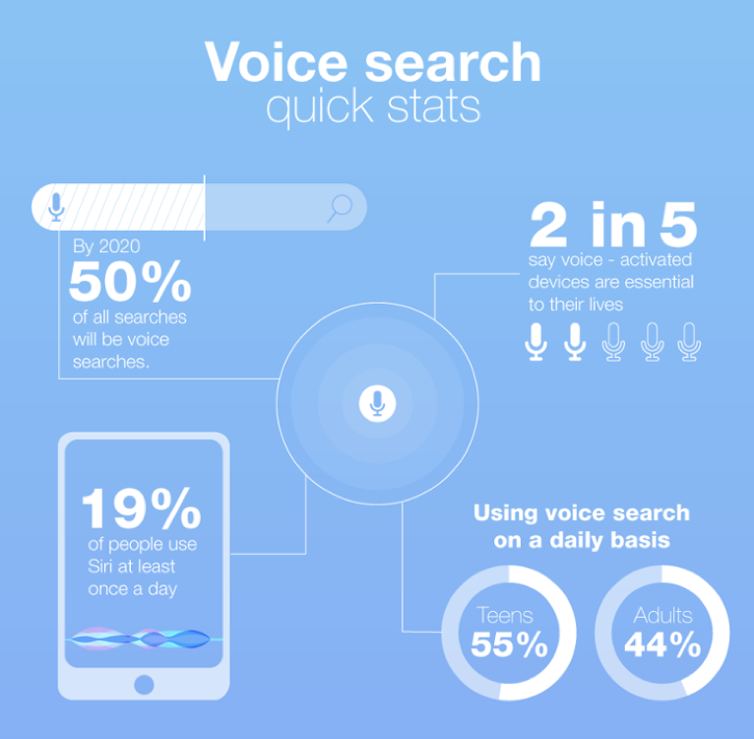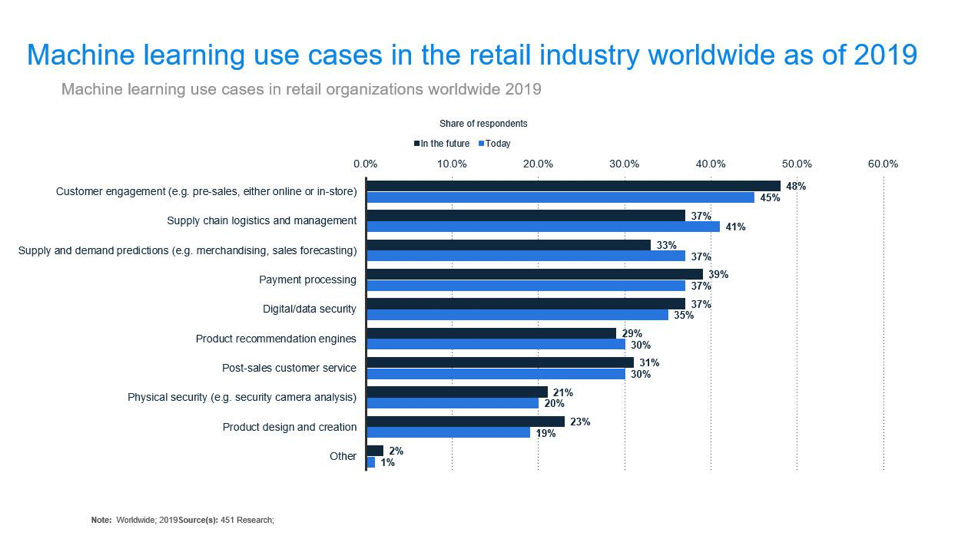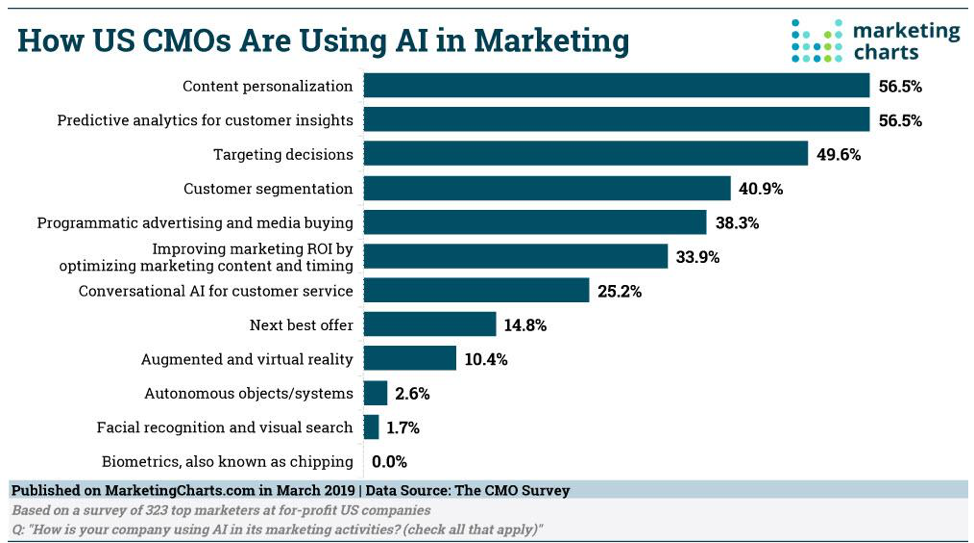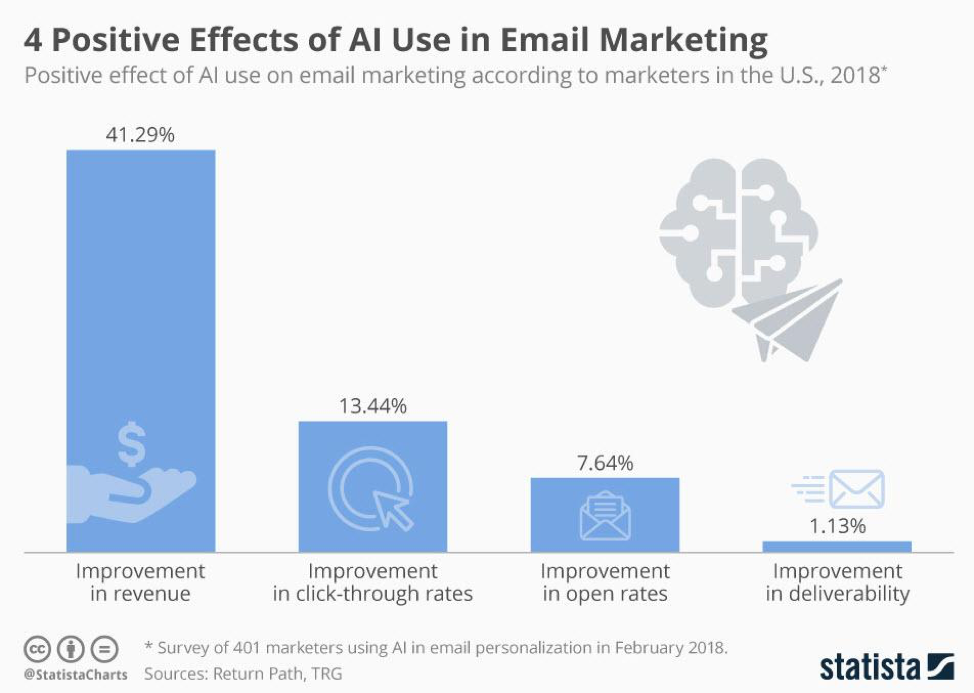Contents
Artificial intelligence (AI) is quickly becoming a key tool in the world of SEO. More than 37% of all organizations have used AI in some form. It’s not just about search engine optimization (SEO), either—it can be used to improve everything from website creation to content generation and even social media marketing.
In this post, we’ll look at seven ways AI will impact the future of SEO:
How AI Will Impact The Future Of SEO
1. Voice Search

Voice search is a big deal. It’s growing faster than ever, and it’s more personal than ever before.
It’s becoming even more conversational with voice assistants like Siri and Alexa, who can talk to you as if you were in the same room together—or at least on speakerphone.
Voice search also happens to be much more natural than typing keywords into a search box (which has never been accurate or consistent).
2. Hypertargeting
Hyper-targeting is a term that has been used to describe the process of creating highly relevant, customized ads for specific users.
In short, it’s about using AI-powered targeting to deliver highly targeted ads that are more likely to be clicked on and result in conversions.
This can make your website or app more effective at attracting new customers, whether you’re running an ad campaign or trying out new features on your site.
Here are some examples of hyper-targeting:
- You could use artificial intelligence (AI) to target people who live near your business with ads offering discounts on your products or services if they sign up for email updates from you via Facebook Messenger. You could then send them an order confirmation email when they place an order through Messenger (or another channel). This way, even if someone isn’t interested at first glance—they might have forgotten why they visited when they come back later!
- You could use AI to target people who have visited your website before but haven’t purchased anything and retarget them with ads that offer discounts; then, send them an order confirmation email when they place an order through Messenger (or another channel).
3. Ranking Factors
AI can help with ranking factors. To understand how AI can impact SEO, you first need to understand the ranking factors that are used by Google and other search engines.
These include:
- Domain Authority (DA) – DA is a measure of how well a website ranks among other websites on a given topic or keyword. High DA scores mean that it has high-quality content and is authoritative on its subject matter, while lower DA scores mean that the site may have less authoritative content or may not be considered an authority in its field.
- PageRank – This is an algorithm built into every search engine used today. It measures how many links point back from one page towards another page within your website’s directory structure—and those pages themselves can have different levels of importance based on their relative positions above others within their respective directories’ lists.
4. Machine Learning and Automation

Machine learning, or AI, is a type of technology that uses data to make decisions. It’s used to automate repetitive tasks such as identifying objects in images and translating the text into another language. However, machine learning isn’t perfect yet—it can’t handle all situations or understand the context behind them.
For example, Watson had trouble understanding simple expressions, despite being trained on millions of documents from Google Translate’s N-gram corpus (a collection of millions upon millions of words). And Google Assistant still doesn’t have a full grasp of human language.
Machine learning is a branch of AI that gives computers the ability to learn without being explicitly programmed, and it’s beginning to carve out a place for itself.
5. Understanding Human Intent

You can use AI to understand the user’s intent, which will help you make the right decision. For example, if a potential customer searches for a “new car,” but they’re looking at used vehicles instead of brand new ones. It would be important for your website to show them listings from reliable sources that offer unbiased reviews of cars’ reliability and quality.
In another example: If someone searches Google for “car parts near me” then they may have different needs than someone else who searches “desk chair repair.”
The first person wants a specific type of desk chair; however, the second person needs a replacement part because theirs broke recently and needs fixing immediately. Both types of searchers should get what they need from their respective results pages with little trouble!
6. Image Recognition
AI can recognize objects in images, like the letters on a page or the shape of an object. It can also recognize faces, animals, and people.
AI can also identify places, text, and colors in images. AI can also create AI generated images.
This also means that AI can now also be used to recognize the emotion in a person’s face, making it possible for computers to understand what someone is feeling. It can also be used to detect and track objects in video feeds!
The SEO applications are huge simply because they can even help machines understand human speech, convert speech into text and translate between languages.
7. Focus On Authorities Instead of Keywords

If you want to make sure your site is ranking well, there are a few things to keep in mind.
First and foremost, focus on authority sites instead of keywords.
That said, if you’re looking for a specific keyword that’s difficult to rank on its own (like “apple juice” or “iPhone”), then it might be worth investing in tools like SEMRush or Ahrefs, which will help find relevant information about those terms to improve your chances at ranking high on Google Search results pages (SERPs).
Another thing worth considering when it comes time for SEO optimization: don’t just rely on keywords as part of your strategy—it’s important not only how much traffic each page gets but also how long people stay there before leaving permanently!
AI Will Help With Aspects of SEO, But There’s a Lot That AI Can’t Do Yet
AI is not a substitute for human intelligence.
It can’t understand the intent of a query or page, nor does it know how to interpret the meaning and emotion behind these words. Therefore, AI won’t be able to replace humans in this area anytime soon.
AI will also not be able to understand the cultural context, as well as humans, do—for example, if you were searching for “best coffee maker” instead of “coffee maker,” an algorithm might see that there are thousands of results on Google but still think that yours was better than anyone else’s because it had more stars than theirs did (or vice versa).
This may seem like a small detail but could have major implications when it comes down to ranking pages properly!
To properly rank your site, human intelligence needs to be applied. This is where local business seo services come in. They can provide the necessary data and analysis that will help you get the most out of your online presence.
Human intelligence will also be needed to make sure that your content is optimized correctly.
A lot of people think that AI can do all of the work for them and that it’s simply a matter of uploading a few files and letting their algorithm take care of the rest. But this couldn’t be further from the truth; in fact, it’s even more important now than ever before to have human input on your SEO efforts.
Conclusion
While we’ve only covered the basics here, there are many more exciting developments in artificial intelligence (AI) that will impact the future of SEO.
As mentioned above, machine learning and automation are already being used to make some aspects of SEO more efficient, but it’s still the early days for these techniques – we’re not yet at a point where they can be applied directly to search results themselves.

